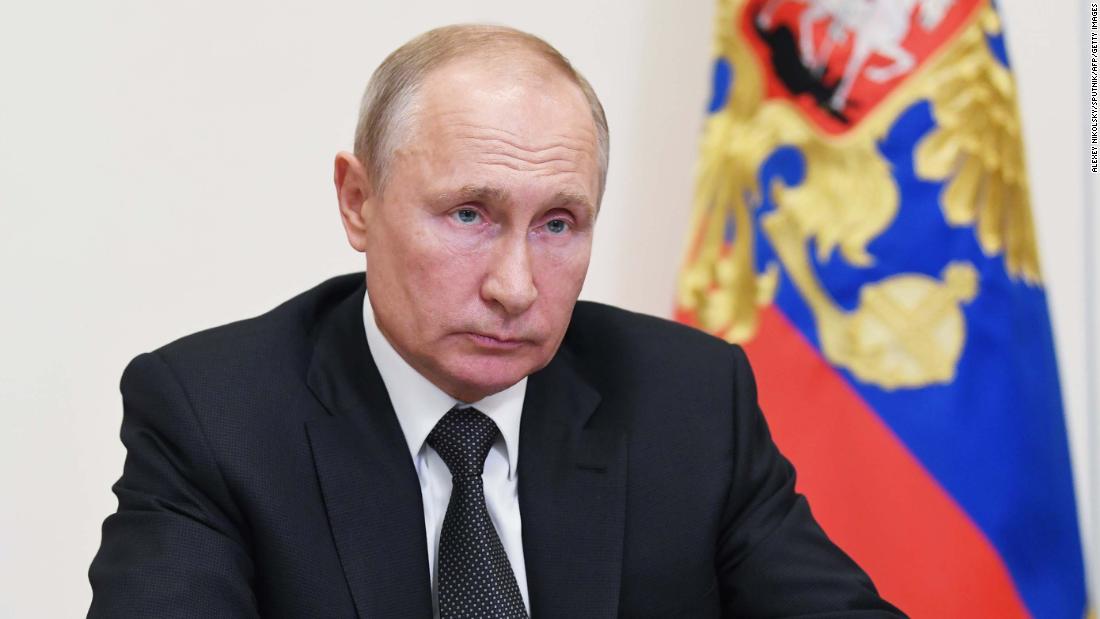Russian President Vladimir Putin is said to be signaling his willingness to call a ceasefire along the current battle line, effectively ending a conflict that has had ramifications far beyond the two countries, hampered post-Covid-19 economic recovery, spawned food shortages around the world, and driven fissures in otherwise friendly relations.
The New York Times reported on Saturday that Putin has privately signaled his willingness to reach a cease-fire through intermediaries, citing two former senior Russian officials close to the Kremlin as well as American and international diplomats who had heard the message from Putin’s envoys.
The publication also stated that the Russian president demanded a cease-fire a year ago.
“They say, ‘we are ready to have negotiations on a cease-fire’,” the report quoted a senior international official who met top Russian officials this fall.
“They want to stay where they are on the battlefield.”
However, there is no evidence that Ukraine will accept a ceasefire without returning Russian-captured territory. Putin could change his decision, according to the report. An as-is-where-is ceasefire has also gained traction in the United States, where taxpayers’ willingness to continue funding the way has waned and many Republican lawmakers have opposed it, thwarting efforts by US President Joe Biden’s administration to obtain congressional authorization for additional funds.
A bill to that effect failed earlier this month, and the fate of the bill will be decided when lawmakers return to Washington after the holidays.
Biden has promised to stay in Ukraine for as long as it takes, but his words will be insufficient without the support of Congress. And, in the absence of US funds, and those from other western nations, Kiev won’t be able to withstand the Russian military for much too long.
Western countries are now attempting to discover methods to use billions of dollars in frozen Russian bank assets abroad to assist Ukraine.
In public statements, Biden stated that the choice to halt the war will be made only by Ukraine.
A cease-fire, on the other hand, will be met with a collective sigh of relief around the world.
For one thing, New Delhi will be relieved. India’s relations with Russia will no longer be a source of contention in its relations with the United States.
Its imports of munitions, weapons, and oil have been subjected to intense US investigation, with supplementary sanctions threatened. It is unlikely to join the US-led alliance, ending decades-old ties with Russia dating back to the former Union of Soviet Socialist Republics (USSR). New Delhi’s refusal to condemn the Russian invasion of Ukraine in language and tone mimicking the US-led alliance had become a sore point here in the US, even with long-time friends of India.
That was before Indian Prime Minister Narendra Modi intervened, issuing a stern warning to President Putin in live statements broadcast around the world.
Now “is not an era of war”, he said.
That statement was welcomed by American officials and came to reflect India’s new position.
It has made its way into joint statements and pronouncements issued by multilateral organizations such as the G20. The Russian invasion of Ukraine in February 2022 occurred while the world economy was still reeling from the impacts of the Covid-19 pandemic, and it was mentioned as the cause of the slow recovery in every World Bank and International Monetary Fund report since.
Russia’s naval blockade of the Black Sea resulted in a global grain crisis as Ukraine’s exports were stuck for five months.
Ukraine is known as the world’s breadbasket.
Above all, a ceasefire will avert further death and destruction.
Source:IANS







 Finance
Finance







